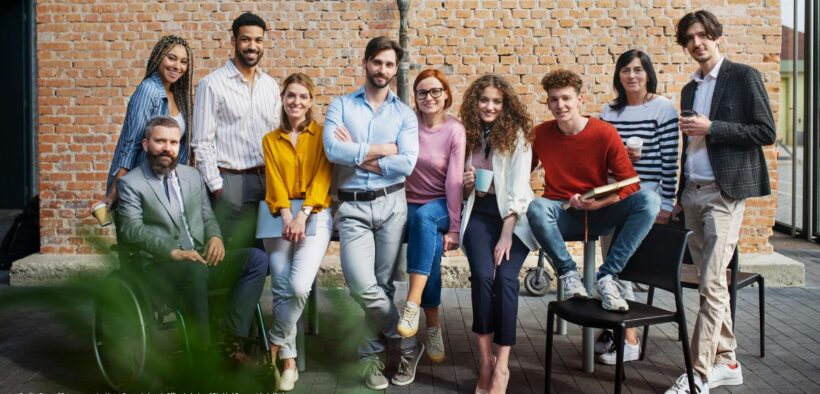Creating more inclusive workplaces in Australia for people with disabilities is essential for fostering diversity, equity, and positive working environments.
Following the Disability Royal Commission last year, the recommendation was handed down that segregated employment for people with disabilities should end in the next ten years.
However, the biggest barrier to this happening is the current state of inclusive design throughout Australian workplaces.
From rethinking office layouts to bringing in special and assistive technologies – a raft of changes needs to be made in many organisations to attract people with disabilities into the workforce.
At Ability Works, we run a full-service inclusive design programme with a range of the country’s top organisations to bring people with lived experiences of disability through their offices to identify key issues in inclusion.
Many, they must expect the unexpected as there are many day-to-day things that we take for granted that are inaccessible for different people with different disabilities.
So, in 2024, here are the top four small changes you can make to your workplace to make it more inclusive to the 4.4 million Australians who live with a disability.
1. Check your tech!
In modern-day technologies, small screens allow us to sign in to premises, book meeting rooms in an office space and even play with the settings on the printer. Something many wouldn’t realise is that for people who are blind or have low vision, these technological advancements are challenging.
Very often these technologies have small fonts or inaccessible colour schemes that make it almost impossible to read. As an employer, you can find accessible ways to provide these technologies or additional systems to support those who need it with this tech. Ensure that all communication, including written and verbal, in your organisation is clear and easily understandable. You might need to provide information in multiple formats, such as braille, large print, or audio, as needed.
2. Closely assess your physical work environment
For many employers, a ramp at the door is as far as accessibility thinking goes and although this itself is still incredible progress, there is a lot more within your workplace that could be holding people with disabilities back.
When wheelchair users in our inclusive design team go through office spaces, they often find the smallest things have the biggest impact. This includes desks that aren’t designed for wheelchair access, network printers that they can’t get near enough too or emergency management procedures that don’t take their needs into consideration. Try to take a look around your office with the lens of someone who uses a wheelchair. You’ll be surprised by what you find.
3. When to say yes to bringing your pet to work
It shocks me every day the number of stories I hear of service animals being rejected from public places. Whether it be from a taxi service, a restaurant and in some cases, high-rise office buildings.
Service animals are not pets, they are medical aids specifically trained to perform tasks for people with disabilities. That includes being their eyes as they go through society or in some cases, helping people with episodic and serious medical crises.
A way that your organisation can fly the flag on inclusion in this area is to be accommodating to service animals in your workplace. Ensure that this is communicated to the Strata of the building you’re situated in and make sure the animals are catered for with water bowls throughout the office.
4. Foster inclusive attitudes and practices
Attitude is everything when it comes to inclusion and remains one of the largest barriers that people with disability face in the workforce. Leadership in this area comes from the top and fostering inclusive attitudes and practices is one of the most important changes you can make.
Foster a culture that values diversity and inclusion, celebrates differences and promotes a sense of belonging for all employees. Recognise and reward inclusive behaviours to encourage a positive work environment.
It can make the biggest difference to someone’s life.
By implementing these tips, you can futureproof your office for years to come and create a more inclusive workplace that not only benefits employees with disabilities but enhances the overall diversity and success of the entire workforce.
Sue Boyce is CEO of Ability Works Australia, a social enterprise based in inner Melbourne. She manages an organisation of 200 people who deliver innovative and flexible solutions for businesses large and small. With a Masters Degree in Public Health from the University of Sydney and over six years of experience in her current role, she is passionate about their social mission to provide "Purpose, pride and belonging through inclusive employment" to people with disabilities and those facing disadvantage.


































































































































































